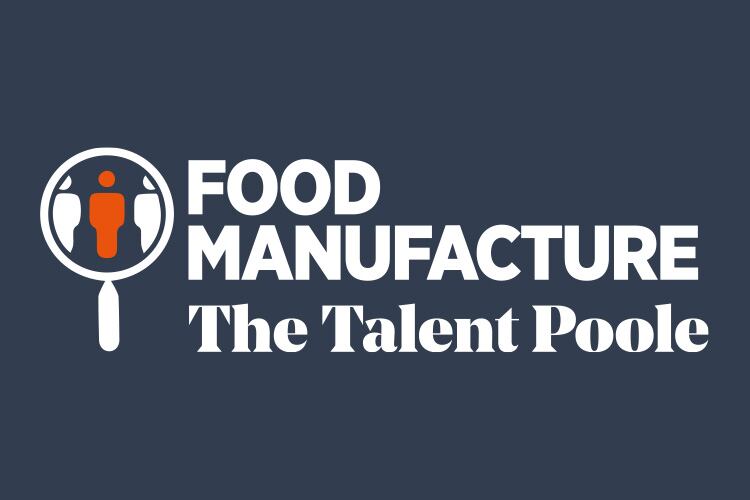In my first leadership column, Leadership in food: What’s going wrong? I highlighted that the food sector is commonly seen as lagging behind other sectors in terms of its predominant style of leadership. In this column, I’m going to unpack this and explore how having a flexible and adaptive leadership approach can enhance performance in your business and benefit the food sector as a whole. To help me I was privileged to be able to gain insights from Clare Menezes, senior director, global food integrity & risk management for McCormick & Company Inc.
Most would not argue that the ideal aim in leadership is to engender an organisational climate where individuals and teams feel empowered, trusted, engaged and motivated. But that ideal can only happen if the leaders within the business work to encourage this through an empowering style of leadership. These are qualities which Menezes recognises, describing her style as “authentic, empathetic, empowering and enthusiastic”.
She continued: “At McCormick we operate based on a ‘people-first culture’. We encourage managers to listen and we operate in a values-driven environment, where team members feel valued for their differences, and respected and supported for what they bring to the table. These attributes are very important.”
D is for directive not dictatorial
Many managers and businesses -for a variety of reasons - naturally use a more ‘directive’ style of leadership – preferring to tell, direct and monitor. In the food sector, there are many reasons why this happens. Production managers will highlight the need to comply with health and safety and food safety procedures, that there is no room for creativity or deviation from these defined processes – this is understandable. Another reason cited by some managers (not just in the food sector) is that they were employed or promoted based on their years of experience which others can benefit from, there is no point in wasting time encouraging employees to reinvent what are well-established ways of working.
There are, however, other ways of viewing this approach and mindset. Requiring individuals to do things ‘your way’ means them learning old ways of working. It also suppresses creativity and restricts any possibility for people to take personal responsibility.

About Clare Menezes
Clare Menezes is director global food integrity for the Global Quality & Food Safety Center of Excellence, in this role one of her key areas of focus is herbs and spice integrity and specifically supply chain vulnerability management, as part of the McCormick global authenticity programme.
As part of her leadership accountability, she is responsible for directing Global Centers of Analytical Science and consequently heads McCormick’s activity investigating Emerging Technologies for the detection and verification of product integrity challenges.
Clare has worked in the herb and spice Industry for more than 20 years, holding a number of technical roles including microbiology, food safety, quality assurance, supplier quality and regulatory responsibilities.
She joined McCormick in 1998 and was appointed to her current position of Director Global Integrity for the Global Quality & Food Safety Center of Excellence in 2018. Prior to joining McCormick, Ms. Menezes was a Public Analyst with Severn Trent Water and Company Microbiologist at Tate and Lyle Sugars (UK).
Clare has a BSc degree in Microbiology, biochemistry and physiology from the University Of Reading (UK) and is a Registered Food Safety Principle (RFoodSP) and recognized Fellow of the Institute of Food Science and Technology
Even in the case of compliance with regulatory requirements, there are ways in which a manager can incorporate a more empowering leadership style. For example, by asking individuals what these requirements mean to them; how they can best ensure they comply – people learn in different ways and a one-size-fits-all approach (your approach) may not work for them. As Menezes comments: ‘If we want talent to thrive and fulfil their potential, we need to empower them and give them permission and freedom to operate. Getting the balance right between tactical delivery and strategic thinking can be challenging, especially in the quality and regulatory space. Through an empowered team, we have some amazing talent that continues to support daily tactical delivery. It’s really rewarding, and, in my experience, it works best when the responsibility is owned by that talent.”
Situational leadership
In reality, managers need to adopt not just a single style of leadership – directive or empowering. Rather, they need to be agile; able to adapt their approach to fit the individual and the circumstance. This is known as ‘situational leadership’, a theory originally defined by Paul Hersey and Ken Blanchard, and now a very well-established leadership technique. So, when dealing with an inexperienced individual, or someone lacking confidence, as well as situations that are more defined, a more directive ‘tell’ style of leadership may well be the most appropriate.
On the other hand, when wanting to get the most out of a highly experienced individual – perhaps more experienced than the manager – a more empowering, hands-off approach is likely to be far more effective.
“There are very few people who technically know it all. I think most of us want to learn, especially in Q&R, but there comes a point in your career as a food safety professional, when you acknowledge that knowledge through others, especially team members, is the smartest move,” commented Menezes.
Having the skills
An important factor worth noting, is whether managers have developed the appropriate skills and behaviours to be truly empowering. A directive approach relies on simply ‘telling’, whereas, to be truly empowering, a manager needs to become an expert questioner and an empathetic listener.
Menezes reflects on this: “I can think of examples where I have seen someone’s potential and, with the right level of encouragement and support, and through careful questioning, they have gone above and beyond. In my experience this requires real effort on the part of the leader.”
It’s also about trust
For leaders to be comfortable giving more responsibility and for employees to want to take more responsibility, there needs to a climate of trust that works both ways. Most people recognise trust is not something that can just be turned on – it has to have been built over time. The best way for a leader to build trust is to demonstrate openness and honesty.
“The key, as an empowering leader, is trust,” acknowledged Menezes. “For me, trust and respect is built around open communication and transparency. The good managers I have worked for over the years, have given me enough autonomy and freedom to operate successfully, while providing the right level of support, with an open-door policy so I could ‘check-in’ when required.”
Resisting the temptation
If a leader’s natural style is to be directive, it takes a lot of courage and resolve to let go enough to be truly empowering. However, the benefits and the resulting outcomes make it well worth developing.
This is hardest during times of crisis, where there may be a temptation to revert to being directive and micro-managing. As Menezes states: “A large part of my role is risk mitigation. So sometimes, in my efforts to pre-empt or forewarn, it might be seen as micro-management. Sometimes there are situations where quick action is needed, but at McCormick, rather than micro-manage, we try and look at the problem differently, utilising the whole McCormick brain to unlock issues or opportunities. On a personal level, it’s easy to ‘get back into the weeds’ - where we feel we can utilise our subject matter expertise and feel comfortable. But I need to remind myself that I have more than capable people and it would be to their detriment if I didn’t step back.
“As a results-oriented leader, sometimes it can be more rewarding to be at the coalface, where all the action is happening. However, as I have become more strategic, I have realised I need to move away from tactical delivery. Having a fully empowered team gives me the freedom to set the right course and work on delivering the change we need. Every day provides challenging and diverse work and we really encourage everyone to drive to innovate. I see a key part of my job as helping my direct reports to keep learning new things and broadening their skillset.
Jon Poole and Food Manufacture would like to extend a thank you to Clare Menezes for her insight and help putting this column together.




